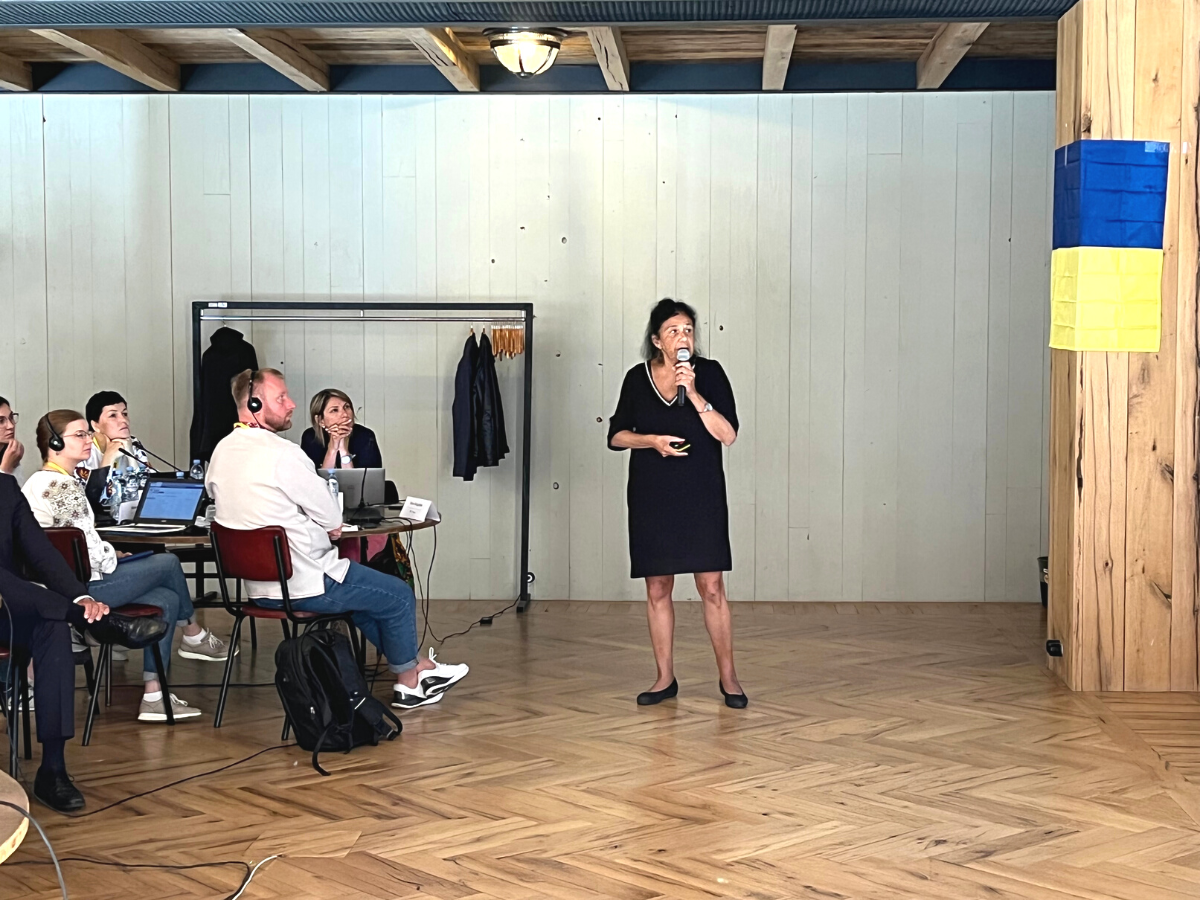ICAP at Columbia University is launching a new project in Ukraine to support the recovery of health systems in the context of Russia’s invasion of Ukraine – which has claimed thousands of lives, displaced millions of people, and significantly threatened health systems since February 2022.
The ripple effects of the war in Ukraine on health, food security, economy, and beyond are profound. Across hundreds of health facilities in the country, Ukrainian civilians and military seeking health services face difficult conditions with dwindling medical supplies and limited personnel. Some health facilities have been destroyed altogether. One evolving threat is that of antimicrobial resistance (AMR) – or when infections no longer respond to available antibiotics.
With support from the Centers for Disease Control and Prevention (CDC) and in partnership with the Center for Public Health of the Ukraine Ministry of Health, ICAP will assist health facilities in Ukraine face some of those impacts by addressing AMR, strengthening surveillance systems, and improving laboratory systems for diagnosis and monitoring of AMR. Multidisciplinary teams will aim to control AMR outbreaks by establishing guidelines on infection prevention and control, antimicrobial stewardship, and linkage to diagnostics and decision support.
“The effects of war on health systems in Ukraine are very palpable,” said Wafaa El-Sadr, founder and director of ICAP. “We are committed to supporting the country in the face of these challenges. ICAP’s years of experience of responding to health needs during times of crisis will be mobilized to address the current situation, and in the process, ensure that these health systems are strong, sustainable, and resilient.”
Without appropriate surveillance systems, or standardized systems to collect, analyze, and share data, public health programs cannot provide early warnings or appropriate management methods for disease outbreaks. ICAP will help develop a unified platform for environmental sampling that will monitor the presence of respiratory, enteric, and antibiotic-resistant organisms in Ukraine. Coupled with genomic sequencing – a lab method that is used to determine the entire genetic makeup of an organism – the country will be positioned to monitor for evolution of new threats. ICAP will also support lab-based surveillance of such diseases as influenza and will expand existing sentinel surveillance systems to monitor other respiratory diseases. Hands-on training and mentorship for laboratory staff will aim to improve capacity for lab certification, quality control, and equipment maintenance. Specialists will also be trained on the use of new laboratory platforms and continuous technical support will be provided for the analysis of genomic sequencing data.
ICAP will support the Center for Public Health in Ukraine to strengthen capacity of the laboratory response network at all levels for emergency preparedness and response to health security threats.
“Surveillance systems are key for getting ahead of major disease outbreaks,” said Andrea Howard, director of ICAP’s Clinical and Training Unit. “Situations of war are the perfect storm for development of infectious disease outbreaks and it’s vital that we get in front of the problem before it begins. This project’s focus on building human resource capacity, procuring equipment, and developing data management systems will be a major asset in that process, ensuring the benefits are long-term.”
ICAP’s new work in Ukraine is a part of a larger effort to address global health security in the Eastern Europe, Caucasus, and Central Asia (EECCA) region. In Georgia, for example, ICAP is providing technical support to implement a national wastewater surveillance system to track the presence of SARS-CoV-2 and other pathogens. ICAP is also providing technical support for the establishment and implementation of a regional community of practice for quality improvement of pan-respiratory disease surveillance and is supporting the Eastern Europe and South Caucasus Field Epidemiology Training Program (FETP), which will involve trainees and mentors from Georgia, Moldova, Ukraine, Armenia, and Azerbaijan.
“ICAP’s work in Ukraine and the EECCA region will facilitate sharing of information and lessons learned between countries and strengthen regional collaboration to address important regional health security priorities,” said Anna Deryabina, regional director of ICAP in Eurasia. “New initiatives will allow expansion in key program areas to include AMR and emergency preparedness and response.”
About ICAP
A major global health organization that has been improving public health in countries around the world for nearly two decades, ICAP works to transform the health of populations through innovation, science, and global collaboration. Based at Columbia Mailman School of Public Health, ICAP has projects in nearly 40 countries, working side-by-side with ministries of health and local governmental, non-governmental, academic, and community partners to confront some of the world’s greatest health challenges. Through evidence-informed programs, meaningful research, tailored technical assistance, effective training and education programs, and rigorous surveillance to measure and evaluate the impact of public health interventions, ICAP aims to realize a global vision of healthy people, empowered communities, and thriving societies.








